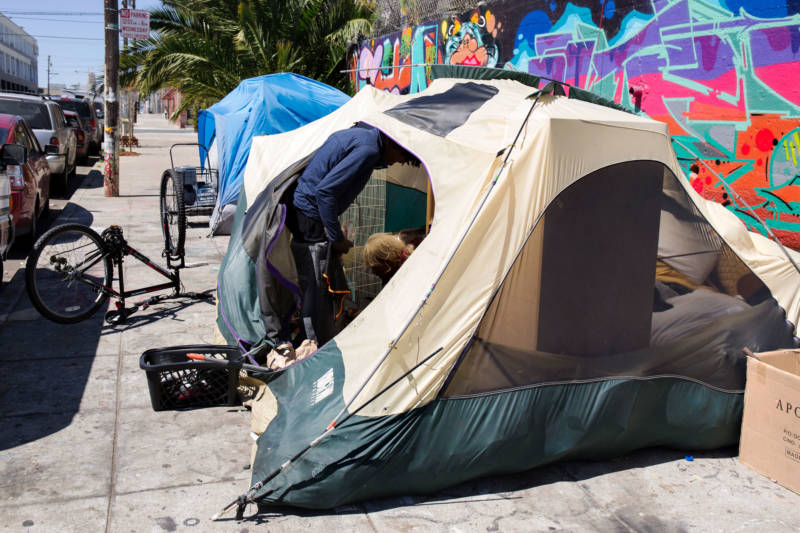The program would also use some funding from an IPO tax recently proposed by Supervisor Gordon Mar to raise the employer payroll tax on stock-based compensation.
A representative for a leading business lobbying group raised concerns about the idea.
“There’s little question that we need to do a far better job of providing mental health care services. It’s not just a San Francisco issue, it’s an issue across the entire Bay Area and California,” said Rufus Jeffris, a spokesman for the Bay Area Council.
“A big danger in this proposal is relying on highly volatile jobs and wealth taxes to fund an ongoing expansion of services. And given criticism about a lack of coordination and coherence in a system that some have described as ‘devastatingly broken,’ voters will need to decide whether spending more money is the right approach,” Jeffris said in an email.
Notably absent from the press conference announcing the plan were San Francisco’s mayor, London Breed, and anyone from the city’s department of public health.
Both offices said they couldn’t comment on the proposal yet because they both hadn’t seen it until Tuesday, when it was announced to the public.
Those offices have been trying to address shortfalls in mental health care. The mayor recently hired the city’s first ever director of mental health reform, Dr. Anton Nigusse Bland, who previously directed psychiatric emergency services at San Francisco General Hospital.
He is now tasked with evaluating the city’s mental health and substance abuse treatment services, particularly for homeless people, and making recommendations for changes.
The city is also participating in a pilot project overhauling the delivery of drug treatment services through Medi-Cal – a project that includes some features proposed in the Mental Health SF program.
But Ronen says it’s not nearly enough.
“We haven’t seen a single plan that comes out of the mayor’s office to deal with this crisis at the scale that we’re dealing with,” Ronen said. “We need a massive overhaul.”
To staff the program, Ronen believes the city can accomplish what the private health care industry can’t. Kaiser Permanente has been the target of numerous complaints about long wait times for mental health appointments, which clinicians there say is due to under staffing. Their union recently authorized a strike over the issue, following a five-day strike in December. Patients with Blue Shield coverage say when they call therapists listed on the insurer’s network, most are not taking new patients.
Both companies routinely explain this by saying there is a shortage of clinicians. But Ronen says this is an excuse.
“Part of Mental Health SF is we’re going to pay people what we need to pay them to attract them, and we’re going to have the revenue to do so,” she said.
The program will also rely heavily on peer counselors, who don’t carry the same high-level degree that demands such high salaries.
“Sometimes the best care, and the best coaching, it comes from people who’ve experienced the illness themselves,” she said.
The two supervisors plan to officially introduce the measure at next Tuesday’s board meeting. They need six supervisors to support the proposal, and currently five are backing it. Along with Ronen and Haney, Supervisors Mar, Shamann Walton and Norman Yee are on board. Ronen expects Supervisor Aaron Peskin to back it as well.

